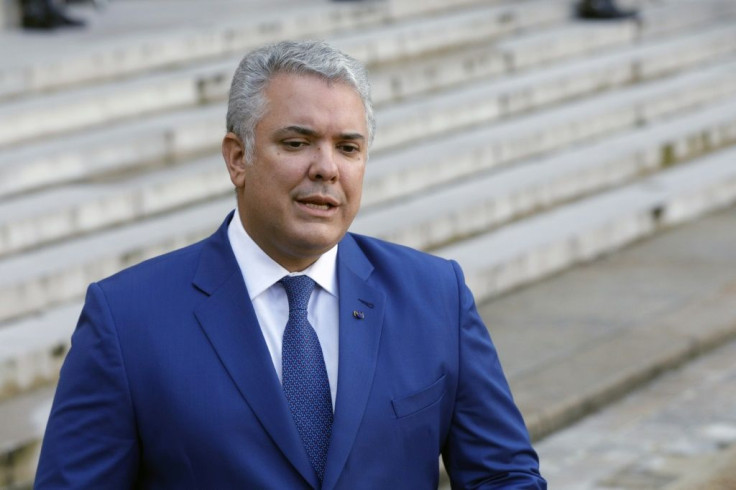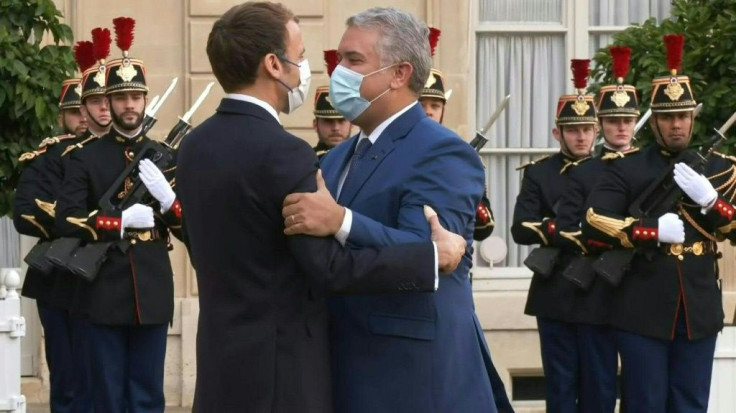No Democracy In Venezuela Under 'Dictator' Maduro: Colombia's Duque
Democracy will never blossom in Venezuela until its "dictator" President Nicolas Maduro loses power, Colombian President Ivan Duque said Wednesday, dismissing regional elections there due later this month as a ploy for him to stay in office.
In an interview with Agence France-Presse (AFP) during a visit to Paris, Duque showed little sign of wanting to hold out any olive branches to Maduro who recently called for a normalisation of times with Bogota.
"It is Maduro's eternal strategy: to divide the opposition, invite them to participate in elections, to let them win four, five, or six regions to be able to pass for a democrat in the eyes of the world and to maintain his dictatorship," he told AFP

The elections on November 21 will "neither be free nor democratic", he said.
After boycotting the last three national elections, the opposition has decided to contest the November 21 mayoral and gubernatorial polls, but their leaders have been unable to agree on unified candidates.

"I do not believe in a process that does not have clear rules, that does not have clear objectives," commented Duque, who earlier met French President Emmanuel Macron at the Elysee Palace.
"It is clear that the flourishing of democracy in Venezuela will begin the day Nicolas Maduro leaves his post as dictator of the country."
Colombia and Venezuela, which share a border of some 2,200 kilometres (1,370 miles), have tense relations, while almost two million Venezuelans have migrated to Colombia in recent years to flee the economic crisis.
Caracas unilaterally closed its land borders with Colombia in February 2019 amid a power struggle between Maduro and opposition leader Juan Guaido -- who claims to be his country's interim leader.

Guaido received support from around 60 countries, including the European Union, United States and Colombia and Bogota's backing prompted Caracas to cut diplomatic relations.
Maduro last month called for the normalisation of trade and diplomatic relations with Colombia. "Colombia and Venezuela have to solve our problems in peace," he said.
Colombia is seeing its worst upsurge in violence since the disarmament of the guerilla group the FARC and the historic 2016 peace deal that won Duque's predecessor the Nobel Peace prize.
But Duque defended his decision to halt talks with left-wing guerillas the National Liberation Army (ELN) in 2019, which is now continuing its armed struggle.
"There is no desire for peace" on their part, he said of the ELN.
"Until there is an end to all criminal activity and the release of all hostages, it will be very difficult for us to get closer, because that would mean a validation of all these atrocious crimes," he told AFP.
As for the FARC, the Colombian president said he saw "a kind of mixed situation.
"However, it is also very important to talk about the challenges. I think it is necessary to obtain a more effective material and economic reparation from the perpetrators of these crimes."
© Copyright AFP 2024. All rights reserved.




















